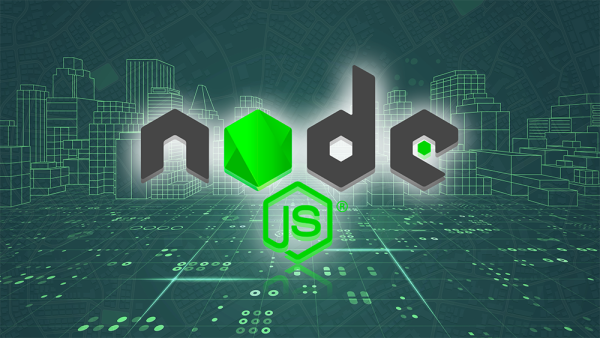Node.js 23.9.0 Crack Free Download {2025}
Node.js is an open-source, cross-platform JavaScript runtime environment that enables developers to build scalable and high-performance applications. It is designed to execute JavaScript code outside of a web browser, making it a powerful tool for developing server-side and networking applications. Initially released in 2009 by Ryan Dahl, Node.js is built on the V8 JavaScript engine, which is known for its speed and efficiency in executing JavaScript code.
One of the key advantages of Node.js is its non-blocking, event-driven architecture. Unlike traditional server-side technologies that rely on multi-threading, Node.js operates on a single-threaded event loop, allowing it to handle multiple concurrent connections efficiently. This makes it particularly well-suited for real-time applications, such as chat applications, live streaming services, and online gaming platforms, where fast response times are crucial.
Node.js comes with a rich ecosystem of packages and modules, thanks to its package manager, npm (Node Package Manager). With over a million open-source libraries, developers can easily integrate third-party tools and frameworks into their applications, reducing development time and effort. Popular frameworks like Express.js, NestJS, and Koa extend Node.js’s capabilities, making it easier to build APIs, web applications, and microservices.
Node.js 23.9.0 Crack With Serial Key
In addition to web development, It is widely used for backend services, command-line tools, and even desktop applications. It provides seamless integration with databases, such as MongoDB, MySQL, and PostgreSQL, enabling efficient data management. The ability to use JavaScript on both the frontend and backend streamlines the development process, allowing full-stack developers to work with a single programming language throughout the application.
Scalability is another major strength of Node.js. Its lightweight and asynchronous nature allows applications to scale horizontally across multiple servers with minimal resource consumption. Companies like Netflix, LinkedIn, and PayPal have adopted Node.js to handle high-traffic loads, improve performance, and enhance user experience. Its ability to handle large-scale applications with efficiency makes it a preferred choice for modern web development.
Advanced Key Features:
- Node.js provides several advanced features that make it a preferred choice for modern web development:
- Asynchronous and Non-blocking I/O – Handles multiple requests without waiting for one to complete, improving performance.
- Event-Driven Architecture – Uses an event loop to process requests efficiently without creating multiple threads.
- Fast Execution – Powered by the V8 engine, Node.js executes JavaScript code at high speed.
- Cross-Platform Compatibility – Works on Windows, macOS, and Linux, making it flexible for different environments.
- Built-in Package Manager (npm) – Offers a vast collection of reusable libraries to speed up development.
- Microservices and API Development – Ideal for creating RESTful APIs and microservices due to its lightweight structure.
- Real-time Applications Support – Perfect for chat apps, gaming, and streaming services with WebSockets.
- Built-in Modules – Provides core modules for handling file systems, networking, and streams without additional dependencies.
What’s New in Node.js?
- Node.js receives regular updates to improve performance, security, and developer experience. Recent updates include:
- Native Fetch API Support – Similar to the browser Fetch API, making HTTP requests easier.
- Improved Performance with V8 Updates – Enhancements in the V8 engine for faster execution.
- ECMAScript Modules (ESM) Support – Better compatibility with modern JavaScript module systems.
- Enhanced Diagnostics and Debugging Tools – Improved debugging support for better error tracking.
System Requirements:
- Node.js runs on multiple platforms with the following minimum requirements:
- Windows: Windows 7 or later (64-bit recommended)
- macOS: macOS 10.10 or later
- Linux: Most distributions including Ubuntu, Debian, CentOS, and Fedora
How to Install Node.js?
- Download the latest Node.js installer from the official website (nodejs.org).
- Run the installer and follow the on-screen instructions.
- Verify installation by opening the terminal or command prompt and running:
- This will display the installed Node.js version.
- npm install to add libraries and tools for development.
Advantages:
- High performance due to non-blocking architecture.
- Scalable and lightweight, ideal for microservices.
- Large ecosystem with npm offering numerous libraries.
- Full-stack development with JavaScript on both frontend and backend.
- Strong community support with frequent updates and improvements.
Disadvantages:
- Single-threaded nature may struggle with CPU-intensive tasks.
- Callback hell in complex applications due to nested asynchronous functions.
- Frequent updates require developers to adapt to new changes regularly.
FAQs:
Q: Is Node.js a programming language?
A: No, Node.js is a runtime environment that allows JavaScript to run outside the browser.
Q: Can Node.js be used for frontend development?
A: No, Node.js is primarily for backend development, but it supports frontend tools like Webpack and Babel.
Q: What is npm?
A: npm (Node Package Manager) is a package manager for Node.js that helps install and manage libraries.
Q: Can Node.js handle real-time applications?
A: Yes, It is widely used for real-time apps like chat applications, online gaming, and live streaming.
Q: How does Node.js compare to Python for backend development?
A: It is faster and better for real-time applications, while Python is preferred for data-heavy tasks and AI development.
Summary:
It is a fast, scalable, and efficient JavaScript runtime designed for server-side applications. With its non-blocking, event-driven architecture, it excels in handling real-time applications, microservices, and APIs.

